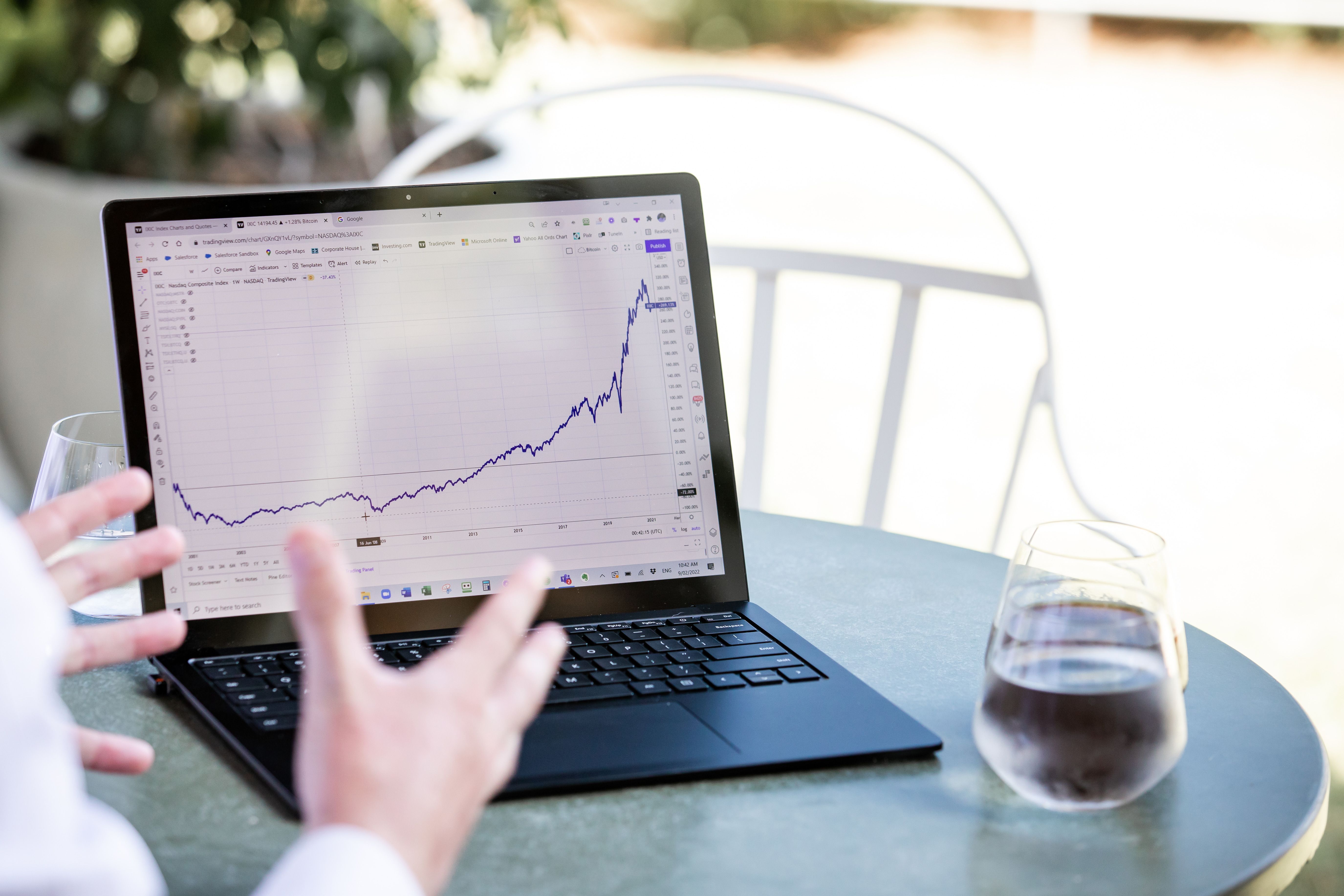Exchange-traded funds, or ETFs, have become a popular investment option for those looking to diversify their portfolios and gain exposure to a variety of assets. ETFs are similar to managed funds in that they allow investors to pool their money together but they differ in the way they are traded.
Unlike managed funds, which only trade once a day after the market closes, ETFs can be bought and sold throughout the day on a stock exchange, much like regular stock. With ETFs, investors can choose from a wide range of options, including tracking a specific index, sector, commodity, or investment strategy. ETFs offer a number of benefits, including lower expense ratios compared to managed funds.
In this article, our expert financial advisors look at what an ETF is in more depth as well as highlight some of the pros and cons and examine whether it might be a good idea for you.
At Aspiri, we are passionate about empowering our clients to have an exceptional lifestyle through a comprehensive approach to holistic advice, investments, super, and wealth management.
We have extensive experience helping:
We help people build wealth, enjoy what they’ve worked hard for, and leave a legacy they can be proud of. Contact us today!
The difference between ETFs and managed funds
There are some key differences between ETFs and managed funds:
- Structure: A managed fund pools money from many investors to purchase securities. The fund is managed by a professional fund manager who makes investment decisions and runs the day-to-day operations of the fund. An ETF, on the other hand, is a type of fund that is traded on stock exchanges, just like individual stocks. ETFs are typically passively managed and track the performance of a specific market index.
- Pricing: Mutual funds are priced once per day, at the end of the trading day, based on their net asset value (NAV). ETFs, being traded on stock exchanges, are priced continuously throughout the trading day and their price is determined by supply and demand.
- Investment minimums: Managed funds often have higher investment minimums, which can make it more difficult for individual investors to get started. ETFs, however, can often be purchased in small quantities.
- Trading flexibility: ETFs can be bought and sold throughout the trading day, just like individual stocks. This gives investors the ability to respond quickly to market conditions or changes in their personal financial situation. Managed funds, on the other hand, are bought and sold at their NAV only once per day.But it can take days, weeks or months for the money to come back to the investor depending on the underlying investments.
- Cost: ETFs are generally less expensive than mutual funds due to their passively managed structure and lower overhead costs. This can make ETFs a more cost-effective option for investors, especially for those who plan to hold the investment for an extended period of time.
Now let’s look at some pros and cons of ETFs more closely.
The pros and cons of ETFs
Pros of ETFs:
Investing in ETFs offers many benefits, particularly when compared to traditionally managed funds. Here are some of the key advantages of ETFs:
- Diversification: ETFs allow investors to gain exposure to a wide range of equities, market segments, or styles with just one investment. An ETF can track a broad range of stocks or aim to replicate the returns of a specific country or group of countries or different themes or sectors.
- Consistent pricing: The chance of ETF share prices being higher or lower than their actual value is low. ETFs trade throughout the day at prices close to the underlying securities and any significant discrepancies are usually corrected through arbitrage. Unlike closed-end index funds, ETFs are priced based on supply and demand and any price discrepancies are usually captured by market makers.
- Stock-like trading: Despite providing diversification benefits, ETFs are generally highly liquid and trade like a stock. The time to settle your trades for ETFs happens within 2 days of you making the trade through your broker.
- Tax efficiency: ETFs tend to be more tax-efficient than mutual funds, as they realise fewer capital gains due to their passive management style. Managed funds, on the other hand, are required to distribute capital gains to shareholders, which is taxable.
- Low fees: ETFs, being passively managed, generally have lower expense ratios compared to actively managed mutual funds. This is due to a lack of management fees, shareholder accounting expenses, service fees, and load fees associated with managed funds.
Cons of ETFs
- Market or sector risk: The market or sector that your ETF follows could decrease in value, leading to a drop in the value of your ETF investment.
- Currency risk: If your ETF invests in overseas assets, there is a possibility of changes in currency exchange rates affecting your returns. Some ETFs offer currency hedging, which eliminates this risk.
- Limited choices: Although there is a multitude of ETFs available, the selection may be limited compared to other investment options like managed funds, making it difficult for investors to find an ETF that precisely aligns with their investment goals.
- Liquidity concern: Some ETFs invest in assets that are not easily tradable, making it challenging for the ETF provider to issue or redeem securities at times.
- Tracking errors: The return of an ETF may not match the index or asset it is meant to track, due to differences in the assets held by the ETF, fees, taxes, and other factors. This can result in buying or selling at a price that is not equal to the indicative net asset value (iNAV).
Are ETFs right for you?
Exchange Traded Funds (ETFs) have become a popular investment option for those seeking to diversify their portfolios and gain exposure to a wide range of assets. ETFs are different from mutual funds in that they can be bought and sold throughout the day like a regular stock, and they have lower expense ratios and fewer broker commissions than mutual funds. However, ETFs can also have higher costs compared to investing in a specific stock, lower dividends, and skewed leveraged ETF returns, which could lead to significant losses for inexperienced investors.
At Aspiri, we can help you navigate these options and develop a comprehensive approach to your investments, super, and wealth management. Contact us today to learn more.
Aspiri Financial Services (ABN: 37 626 759 340) (“Aspiri”) holds an Australian Financial Services Licence issued by the Australian Securities and Investments Commission (AFSL No: 300878).
This material is issued by Aspiri and is general in nature, and does not constitute advice. This information does not take into account your personal objectives, circumstances, financial situation or needs. We strongly recommend you seek independent professional advice, including but not limited to speaking to a licensed financial planner and/or tax advisor, before opening an account with us and/or acquiring our services/products.
Aspiri does not give any warranty as to the accuracy, reliability or completeness of information, which is contained herein, except insofar as liability cannot be excluded. Past performance is not a reliable indicator of future performance.
Before you invest in any products referred to in this material, you should use our Financial Services Guide (FSG) and other relevant disclosure documents, including the relevant Product Disclosure Statement. Fees, charges and commissions apply.
For more information, please feel free to contact us.




